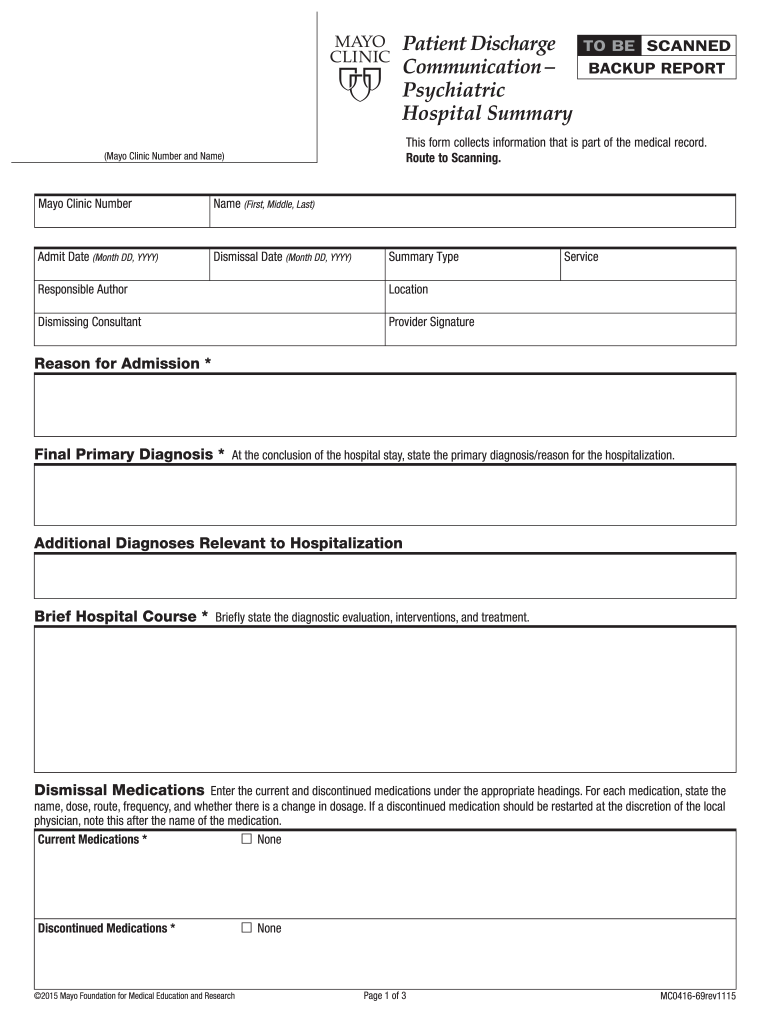A Master Sergeant's Plea: The Impact Of Forced Military Discharge On Mental Wellbeing

Table of Contents
The Trauma of Unexpected Separation
The trauma of forced military discharge extends far beyond the simple loss of a job. It represents a profound disruption of identity and a shattering of carefully constructed life plans.
Loss of Identity and Purpose
For many service members, their military identity is deeply ingrained. Unexpected separation throws this into disarray, leaving individuals grappling with a profound sense of loss and purpose.
- Loss of Camaraderie: The immediate loss of the strong bonds of military brotherhood or sisterhood is deeply felt, leaving a void that is difficult to fill.
- Disruption of Career Plans: Years of dedicated service and career progression are abruptly halted, leaving individuals feeling lost and uncertain about their future.
- Feelings of Failure: Forced discharge can be interpreted as a personal failure, leading to self-doubt and low self-esteem. This is particularly true if the discharge is related to a perceived shortcoming.
- Difficulty Adjusting to Civilian Life: The transition from the structured environment of the military to the often chaotic and unpredictable nature of civilian life can be extremely challenging, further exacerbating pre-existing mental health issues or triggering new ones.
One veteran described the experience as “like losing a limb. You don't just lose a job, you lose your identity, your family, and your sense of belonging.”
Financial Instability and its Mental Health Toll
The financial implications of forced military discharge significantly contribute to the burden on mental wellbeing. Many veterans face significant financial hardship, fueling stress and anxiety.
- Difficulty Finding Civilian Employment: Transferable skills from military service aren't always recognized by civilian employers, leading to unemployment and increased financial strain.
- Lack of Healthcare Access: The loss of military healthcare benefits can leave veterans struggling to access necessary mental health services, creating a vicious cycle of untreated trauma and worsening financial difficulties.
- Debt Accumulation: Medical bills, housing costs, and general living expenses can quickly accumulate, leading to significant debt and immense stress.
- Housing Instability: The lack of financial resources often leads to homelessness or unstable housing situations, further compounding the mental health challenges.
According to the Department of Veteran Affairs, veteran unemployment rates are consistently higher than the national average, highlighting the critical need for targeted employment assistance for those facing forced military discharge.
The Prevalence of Mental Health Conditions Post-Discharge
Forced military discharge significantly increases the risk of developing or exacerbating existing mental health conditions. The unexpected nature of the separation acts as a significant stressor, often triggering or worsening underlying vulnerabilities.
Increased Risk of PTSD and Depression
Veterans facing forced discharge exhibit a higher prevalence of PTSD, depression, anxiety disorders, and substance abuse compared to those who leave voluntarily.
- Connection to Unexpected Separation: The sudden loss of structure, support, and identity can trigger pre-existing conditions or create new ones, particularly in individuals with a predisposition to mental health issues.
- The Stigma of Discharge: The perception of failure associated with forced discharge can amplify feelings of shame and isolation, leading to a reluctance to seek help.
Studies consistently demonstrate a correlation between unexpected separation from military service and a heightened risk of developing PTSD and depression. The loss of a structured environment and support network exacerbates the already stressful transition to civilian life.
The Impact on Family and Relationships
The impact of forced military discharge extends beyond the individual, significantly affecting family dynamics and relationships, adding further strain to mental wellbeing.
- Increased Stress on Spouses and Children: Financial insecurity, job loss, and the emotional toll on the veteran can strain family relationships, potentially leading to conflict and breakdown.
- Relationship Breakdowns: The stress and emotional instability caused by forced discharge can significantly contribute to marital problems and separation.
- Isolation: The combination of job loss, social isolation, and emotional distress can lead to a sense of isolation and loneliness, further exacerbating mental health challenges.
Strong family support is crucial during this difficult transition, yet access to family therapy and support services is often lacking.
Lack of Adequate Support and Transition Resources
Despite the significant mental health challenges faced by veterans facing forced military discharge, adequate support and transition resources are often lacking.
Insufficient Mental Health Services
The current system of mental healthcare and support services for these veterans often falls short of meeting their needs.
- Long Waiting Lists: Access to mental health services can be significantly delayed due to long waiting lists and limited availability of specialized care.
- Limited Access to Specialized Care: Veterans may struggle to find clinicians experienced in treating the unique mental health challenges faced by those leaving the military unexpectedly.
- Lack of Awareness Among Healthcare Providers: Many healthcare providers lack awareness of the specific mental health needs and challenges faced by veterans facing forced discharge.
Improvements in access to timely and specialized mental healthcare are crucial in mitigating the mental health impact of forced military discharge.
The Need for Improved Transition Programs
Effective transition programs are essential in providing the support veterans need to navigate the complex challenges of civilian life after unexpected separation.
- Job Training and Placement Services: Targeted job training and placement services are necessary to help veterans find meaningful employment and regain financial stability.
- Financial Assistance: Providing financial assistance, such as housing subsidies and unemployment benefits, can alleviate the stress associated with financial instability.
- Housing Support: Access to stable and affordable housing is crucial for those struggling to find employment and re-establish their lives after forced discharge.
- Peer Support Networks: Connecting veterans with peer support networks provides a crucial sense of community and shared experience, reducing feelings of isolation and facilitating healing.
Successful transition programs emphasize holistic support, addressing the financial, emotional, and social needs of veterans.
Conclusion
Forced military discharge has a profoundly negative impact on the mental wellbeing of service members. The unexpected separation triggers a cascade of challenges: loss of identity, financial instability, and increased vulnerability to mental health conditions such as PTSD and depression. The inadequate support systems currently in place further exacerbate these difficulties. The lack of readily available and effective mental health services, coupled with insufficient transition programs, leaves many veterans struggling to cope.
Let's work together to improve the transition process for those facing forced military discharge and prioritize their mental wellbeing. Contact your representatives, support veteran organizations dedicated to improving mental health services for veterans, and spread awareness about this critical issue. By advocating for systemic changes and improved support systems, we can help ensure a smoother transition and better mental health outcomes for all affected service members. We owe it to those who have served our nation.

Featured Posts
-
 Foot Lockers New Global Headquarters A Florida Relocation
May 16, 2025
Foot Lockers New Global Headquarters A Florida Relocation
May 16, 2025 -
 Nba Playoffs 2025 Tatums Wrist Injury Update After Flagrant Foul Incident
May 16, 2025
Nba Playoffs 2025 Tatums Wrist Injury Update After Flagrant Foul Incident
May 16, 2025 -
 Block Mirror A Deep Dive Into Dystopian Website Access Solutions
May 16, 2025
Block Mirror A Deep Dive Into Dystopian Website Access Solutions
May 16, 2025 -
 Foot Lockers Executive Team A Look At Current And Future Leadership
May 16, 2025
Foot Lockers Executive Team A Look At Current And Future Leadership
May 16, 2025 -
 Nba Star Jalen Brunson Misses Key Wwe Raw Event Cm Punk Vs Seth Rollins
May 16, 2025
Nba Star Jalen Brunson Misses Key Wwe Raw Event Cm Punk Vs Seth Rollins
May 16, 2025
